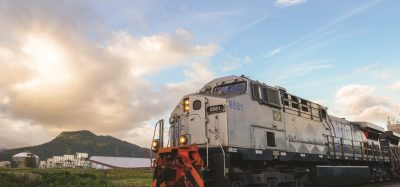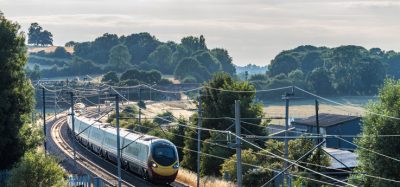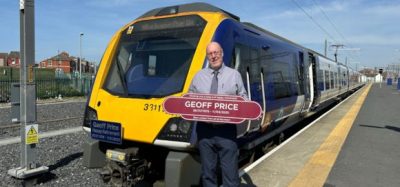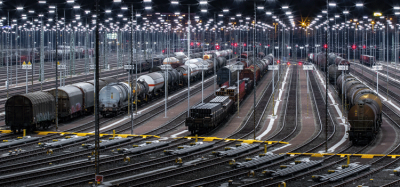The Grand Central experience – an operational and safety management perspective
Posted: 29 November 2012 | | No comments yet
Grand Central is an open-access passenger train operator, carrying passengers from London Kings Cross to York and the North East and to Doncaster and West Yorkshire. For Global Railway Review, David Neil, Head of Operations and Safety at Grand Central, explains how the open-access operator fits into the UK train operations framework and also shares his experiences since joining the company.
Open-access railways: Open-access is a passenger train operation operating purely on a commercial basis and is not under either a franchise or a concession agreement. However, it is not as simple as identifying routes and resources then operating. Criteria set by the Office of Rail Regulation (ORR) need to be met and a notable requirement is that the service needs to benefit communities and routes over and above what a franchise operation is providing. Available train paths also need to be identified and agreed with Network Rail. Open-access is about attracting new business onto rail and away from our congested road system. A problem, of course, is that we also have an increasingly congested rail network.
Grand Central is an open-access passenger train operator, carrying passengers from London Kings Cross to York and the North East and to Doncaster and West Yorkshire. For Global Railway Review, David Neil, Head of Operations and Safety at Grand Central, explains how the open-access operator fits into the UK train operations framework and also shares his experiences since joining the company. Open-access railways: Open-access is a passenger train operation operating purely on a commercial basis and is not under either a franchise or a concession agreement. However, it is not as simple as identifying routes and resources then operating. Criteria set by the Office of Rail Regulation (ORR) need to be met and a notable requirement is that the service needs to benefit communities and routes over and above what a franchise operation is providing. Available train paths also need to be identified and agreed with Network Rail. Open-access is about attracting new business onto rail and away from our congested road system. A problem, of course, is that we also have an increasingly congested rail network.
Grand Central is an open-access passenger train operator, carrying passengers from London Kings Cross to York and the North East and to Doncaster and West Yorkshire. For Global Railway Review, David Neil, Head of Operations and Safety at Grand Central, explains how the open-access operator fits into the UK train operations framework and also shares his experiences since joining the company.
Open-access railways
Open-access is a passenger train operation operating purely on a commercial basis and is not under either a franchise or a concession agreement. However, it is not as simple as identifying routes and resources then operating. Criteria set by the Office of Rail Regulation (ORR) need to be met and a notable requirement is that the service needs to benefit communities and routes over and above what a franchise operation is providing. Available train paths also need to be identified and agreed with Network Rail. Open-access is about attracting new business onto rail and away from our congested road system. A problem, of course, is that we also have an increasingly congested rail network.
To date there have only been two other open-access train operations, of which only the First Group owned Hull Trains survives. The other was Wrexham and Shropshire Railways which ceased operating in 2011 after struggling for financial viability. There have also been other unsuccessful open-access applications to the ORR.
Early challenges
Set up over a year earlier and with staff employed, after a series of start-up delays largely due to fleet availability and reliability problems, Grand Central (GC) began operating in December 2007. Using a small fleet of 125mph high-speed diesel trains, services consisted of six trains (three in each direction) between London Kings Cross and Sunderland via North Yorkshire and Teesside, serving communities and business centres where no direct trains to/from London hitherto existed.
The problematic beginning had been very unhelpful, particularly in terms of finances (staff employed with no trains to operate), coupled with early reputational damage.
Whilst 2008 saw the company in operational mode, fleet reliability continued to hamper service performance and also, quite worryingly, a new Safety Certificate submission was required by summer 2009 and inspections by ORR safety inspectors were revealing some concerns with the GC Safety Management System (SMS). For a period, the very existence of GC was in jeopardy.
I joined the company as Head of Safety and Standards as part of a management re-organisation brought about partly by the lessons learnt so far and also (despite the existing challenges) with a view to starting services on a new route which would introduce GC trains between London Kings Cross and West Yorkshire, serving centres such as Halifax and Bradford. The ORR had granted GC permission to operate these services and the plan was to commence by May 2010.
Consolidation
2009 and the two years following were positive but challenging years for GC. A new SMS was developed and from this a five-year Safety Certificate was issued by the ORR. A new traincrew depot was brought into operation at Bradford and a fleet of five Class 180 high-speed DMUs were acquired to operate the West Riding (Yorkshire) services and extra trains on our North East route. Whilst these units came with a poor reputation in reliability and upkeep terms, I think it is fair to say that GC have managed these trains in such a way that they have a better reputation now than before.
The business moved from its early ‘fire-fighting’ days into a steady managed operation. Importantly, GC integrated into the rail industry family, partaking and contributing to industry reviews, projects and working groups, etc.
GC started out as an independently owned rail business, until in November 2011, in what can be regarded as recognition of the company’s progress, it was acquired by one of Europe’s largest transport operators – DB/Arriva. This has enabled some streamlining in the management of the business, achievable through efficiencies in using wider organisation resources wherever possible. My own role has expanded to Head of Operations and Safety. I now additionally manage our traincrew teams (drivers and ontrain staff ) and customer service delivery, supported by a team of front-line managers.
Observations
As my fourth anniversary with GC draws near, it is an interesting past few years to reflect on in terms of how the business has consolidated, gained reputation and grown.
Size
When I joined GC, I knew we had worrying and ambitious challenges to overcome, but I thought that being a small operation would help us overcome these. The size of the operations has advantages but also brings its own constraints. There are fewer trains and people than in a large franchise and there is more of a team spirit, but there still needs to be as many policies, procedures and systems and there are only limited management and support resources to get the jobs done. Bringing in additional external expertise and resources to assist was, at times, a necessity for GC until we became part of DB/Arriva. I must also highlight that survival in rail is only possible by working as part of the industry. Try doing it alone and you will struggle. Sharing good practices through involvement with industry groups and liaisons etc. is invaluable.
Employee relations
Employee engagement and encouraging staff to self-manage has always been a GC ethos. However, those who were with GC since its beginning experienced job uncertainty and insecurity and then formal line management suffered after changes of personnel and interim managers being brought in to assist whilst the organisation was being restructured. This affected staff culture and left us with some ‘grey areas’ in local working arrangements, etc. By early 2009, changes in several operational and safety management aspects were a priority for GC to ensure SMS compliance and improve business performance.
Staff affinity with GC exists, but an element of ‘what we did for GC when times were hard’ as much as ‘what GC has done for us’ has been sometimes apparent. Change creates unease in any business and whilst it might be expected that after a difficult beginning and challenging consolidation period, people would be more open to changes at GC, in reality it needs the same level of consultation and negotiation as is needed anywhere else. With this said, relationships at GC are generally healthy and productive.
Recognition of trade unions is a strategy that some might argue would have been better for GC not to do. However, from the outset we have engaged with the main railway unions. I could list positive and negative outcomes from us doing this, but what is most important now is looking ahead and I hope that we can collaborate (or occasionally compromise) and help secure and grow GC for the benefit of customers and employees alike. Even though GC now belongs to a large parent organisation, it has to be able to stand alone. GC exists to feed into its parent, not the other way round. Union leaders and staff representatives need to recognise that GC remains different to the larger franchised companies.
Recruitment
Attracting and employing the best people is vital to any business. Knowledge and experience are important factors for most positions and in operational posts this is a particularly challenging issue. In most cases, people moving between UK train companies can maintain longstanding pension and travel rights. GC, as a new railway operator, is not part of these schemes, meaning that we have to work hard on making GC attractive to the people we want to bring in. However, it is worth adding that speaking to my counterparts within the franchise community, finding quality people for railway operational management posts is a challenge for us all.
Customers
Attracting, satisfying and retaining customers is, of course, essential to the success of any passenger operation. For GC this has had to be achieved against momentous odds. A great deal of marketing innovation and effort has been required to advertise the existence of our service and then to persuade and convince people to use GC. It has also placed great pressure on our operational and engineering teams and required us to work closely with our infrastructure and fleet suppliers to provide consistently reliable service delivery. Comm – unity support from the areas we serve has also been of vital importance.
Proudly, we have achieved regular excellent customer satisfaction results and our customer base continues to grow. Encouragingly, more customers are making a positive decision to find a GC service rather than travel with a competitor. To achieve this has, and will continue, to mean adapting and developing how we make our offer available to customers. For example, GC now offers advance purchase discounted tickets, whilst retaining its ‘no penalties’ buy-on-train facility.
Key learning points have been that it takes a long time to ‘catch on’ and reach consistent good train loadings on new routes. Ownership of the whole passenger on-board experience – from how staff engage with passengers, to providing in-house catering – have been fundamental to our success. An emerging challenge for us is how we manage the increasing and very high demand on a number of our services. However, becoming ‘a victim of our success’ is a more positive challenge to face than some of those we faced only a few years ago.
In conclusion, I believe the Grand Central story and experiences over the past few years serve to provide several key learning points that have relevance not only to the next new train operator in the UK, but to the wider rail industry as well. The business continues to develop and grow and in another few years it will be interesting to see where both open-access and Grand Central feature in the UK rail industry.
About the author
David Neil began his career in 1978 as a Traction Trainee at Gateshead Locomotive Depot on Tyneside. He qualified as a train driver by the early 80s and had entered management by the early-90s. During railway privatisation, David joined the first private franchisee of the East Coast Main Line, GNER, and held several operational and safety management positions at headquarters level. In February 2009, David took up a fresh challenge and joined the relatively new ‘open-access’ rail operator, Grand Central (GC).








